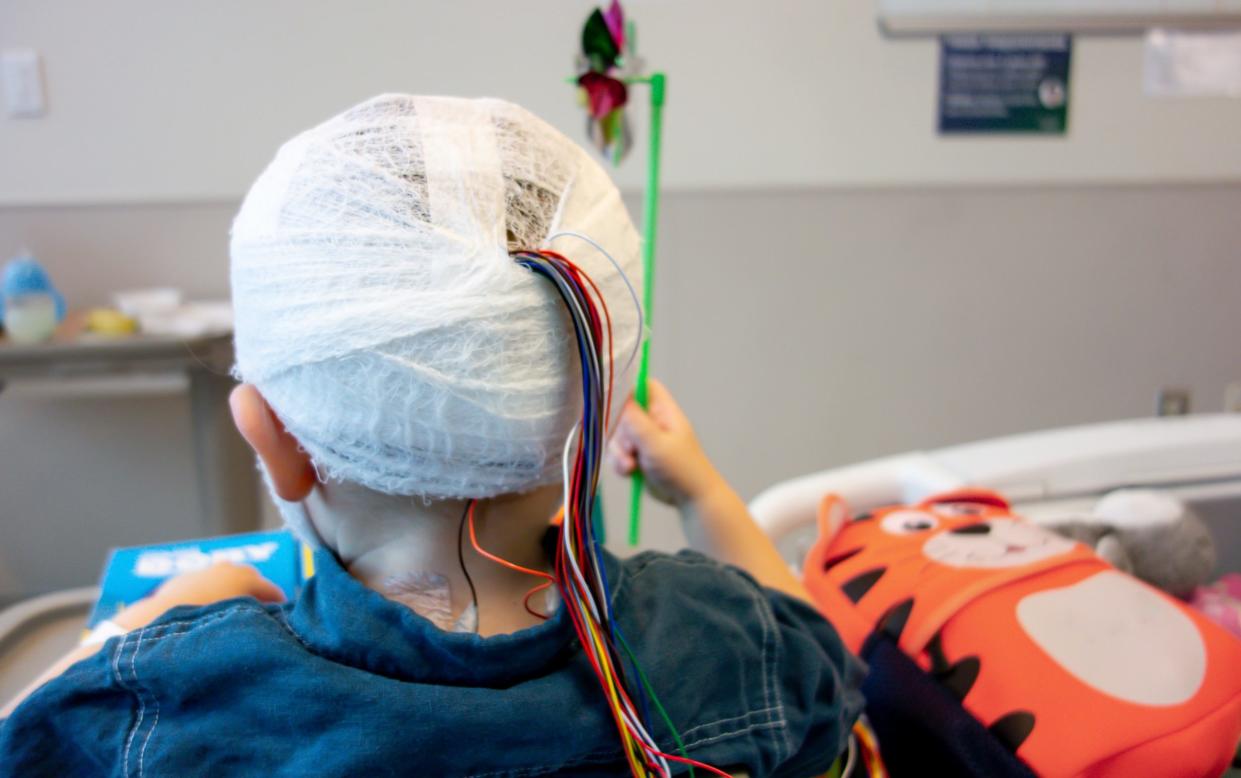ADHD in children could be eased by sending electrical currents into the brain, study finds

Stimulating the brain using electrodes could help ease symptoms of attention deficit hyperactivity disorder (ADHD) in children, a study has found.
Transcranial random noise stimulation (TRNS) works by sending a mild electrical current to the brain through two electrodes on the scalp.
The study, led by researchers from the University of Surrey and the Hebrew University of Jerusalem, explored the use of TRNS alongside cognitive training as a treatment for ADHD.
Roi Cohen Kadosh, head of the School of Psychology and professor of cognitive neuroscience at the University of Surrey, said: “I believe that the scientific community is duty-bound to investigate and develop evermore effective and longer-lasting treatments for ADHD.”
The clinical trial included 23 newly diagnosed and unmedicated children between the ages of six and 12, who were recruited from groups referred to the ADHD clinic by doctors, teachers, psychologists or parents.
Researchers at the computerised neurotherapy lab at the Hebrew University of Jerusalem administered TRNS during cognitive training each weekday over a two-week period.
The parents of 55 per cent of the group reported “significant clinical improvement” in ADHD symptoms to researchers, compared with 17 per cent in a control group that was given placebo brain simulation.
Prof Kadosh said the findings demonstrate the treatment “has the potential to transform the lives of children and their families”.
ADHD is a neurodevelopmental disorder and symptoms include hyperactivity, an inability to focus and impulsiveness.
According to the National Institute for Health and Care Excellence (Nice), it is present in about 5 per cent of children globally.
Researchers are now preparing to start a larger clinical trial using TRNS and cognitive training.
In July, a study by University College London researchers found that diagnoses of ADHD have more than doubled among boys aged 10 to 16 over the past two decades.
The study found that in 2018, 3.5 per cent of boys in this age group had a diagnosis, compared with 1.4 per cent in 2000.
The relative increase was largest among adults. Over that time, there was a 20-fold increase in ADHD diagnoses in men between the ages of 18-29 (from 0.01 per cent to 0.56 per cent).
The TRNS study was published in the Translational Psychiatry journal.
It comes after a major study found that UK lockdowns damaged the emotional development of almost half of children.
Parents said their children appeared more worried, had lost confidence more easily and were more prone to tantrums and low moods after the UK’s Covid lockdowns.
The findings emerged in the first study of its kind into the impact of lockdowns on children’s behaviour and emotional development, with the Institute for Fiscal Studies (IFS) and the UCL Institute of Education surveying more than 6,000 parents in England.


